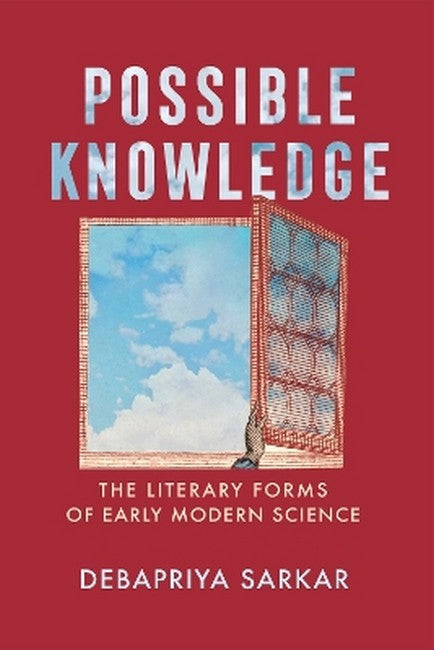Debapriya Sarkar is Assistant Professor of English at the University of Connecticut.
Request Academic Copy
Please copy the ISBN for submitting review copy form
Description
"Possible Knowledge is an important contribution to our understanding of the role of imaginative thinking in shaping early modern discourses of science and empiricism, and it should be read widely by scholars invested in taking seriously literature and its place in histories of epistemology...[A] powerful voice in the defense of poesy." (Modern Philology) "Brilliant...[T]his is a book that is fascinating for scholars of literature, medievalists and parvenus of early science, but also fits within the rising focus on 'weak knowledge' and the inspection of bodies of knowledge that have lost ground by substitution, starvation or abandonment. It presents an intriguing pathway for interdisciplinary researchers seeking an epistemological bridge between the scientific process and the literary, where artefacts of scientific analysis are not sought merely in text, but in methodological analysis of artistic process." (The British Society for Literature and Science) "[A]s a sustained exploration of 'how poesy thinks,' of how early modern fiction-making helped delineate the period's ontological and epistemological contours, Possible Knowledge is an engaging and stimulating read." (Renaissance and Reformation) "This pathbreaking book will be at the vanguard of a new movement in literature and science studies." (Jenny C. Mann, New York University) "An ambitious, brilliant, and genuinely original account of the constitutive relationship between poesy and science in early modernity." (Vin Nardizzi, University of British Columbia) "This important book provides compelling evidence that early modern literature in the age of the new science helped readers develop sophisticated forms of knowing about what existed in the world, and, more crucially, what might possibly come to be." (Mary Thomas Crane, Boston College)

